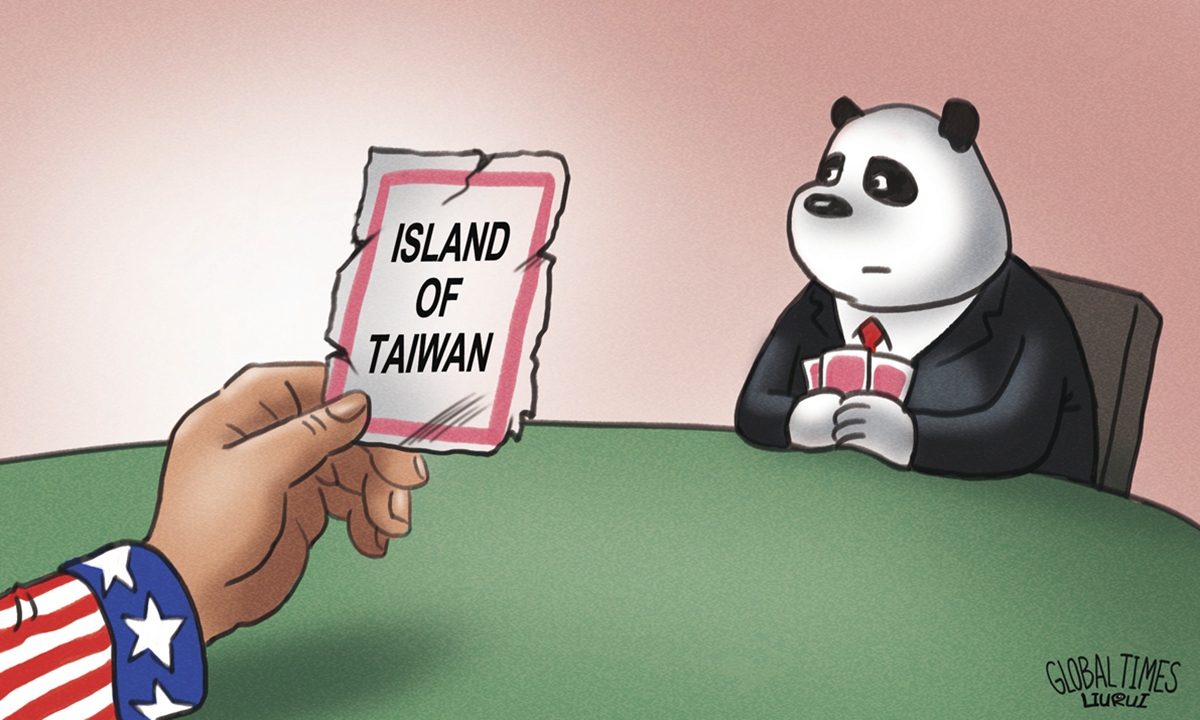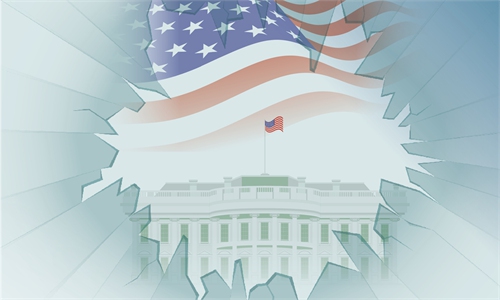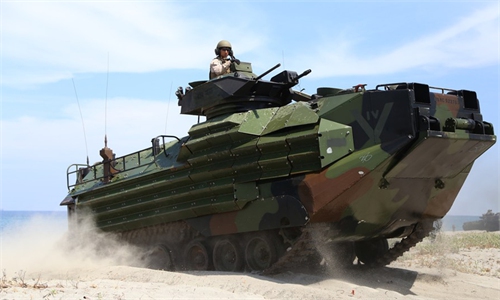
US, China, Taiwan island Illustration: Liu Rui/GT
During a virtual talk on the island of Taiwan on Saturday, British historian Niall Ferguson claimed that the Chinese mainland will pressure Taiwan island more in 2023 "after wrapping up the Communist Party's 20th Party Congress this autumn," according to a news agency in Taiwan.
Ferguson, a scholar who has been hyping the idea of a new cold war between the US and China for years, is not an expert on Taiwan. According to the Taiwan media report, he claimed to have "fallen in love with Taiwan" after he visited the island in January 2020. And it seems that ever since then, Ferguson has become more interested in the Taiwan question and talked more frequently about the island.
In an article for Bloomberg in March 2021, for instance, Ferguson said that a Taiwan crisis may mark the end of the American empire. Later that year, he noted in an interview with Japanese media Nikkei Asia that "there's a significance chance that 'Cold War II' has a hot phase, and the obvious place where that could happen is Taiwan. That could happen quite soon."
The British scholar's recent remarks on Taiwan are nothing new, said Yuan Zheng, deputy director and senior fellow of the Institute of American Studies at the Chinese Academy of Social Sciences.
"In recent years, there have been discussions about when the Chinese mainland will ramp up pressure on Taiwan or achieve reunification by force. The latter question especially has caught the particular attention of the US military and strategic community. Some argue that the mainland will use force to reunify in two or three years, while others believe it will become a reality by 2027, the 100th anniversary of the founding of the China's People's Liberation Army," Yuan noted.
But, what really "stands out" in Ferguson's talk is another point that he had made during the event. Ferguson believes that Taiwan may become a battlefield of the conflict between Beijing and Washington if the US continues to make security commitments to Taiwan while maintaining a confrontational strategy toward the Chinese mainland. In that case, it would be a "nightmare scenario" for Taiwan. Therefore, he argues that it is important for the US and its allies to strengthen the deterrence against the Chinese mainland.
This proves Ferguson holds a rather shallow - or in Yuan's words, "naïve" - understanding of the Taiwan question. "This is foolish logic. Ferguson thinks the US is strong enough to deter the Chinese mainland, and China will not dare to use force if the Taiwan authorities declare 'independence.' But how big is that possibility?" Yuan asked.
"Has Ferguson ever considered whether the US is capable of deterring the Chinese mainland? Has he even thought about the consequences? What price the US and its allies in the West are willing to pay if a war breaks out?" he continued to ask.
In addition a specific time frame is not key to whether the Chinese mainland will increase its military deterrence against the island of Taiwan. It is a typical supposition from the opinionated West to suggest the Chinese mainland has already decided when to do what about the island of Taiwan.
The Chinese mainland's attitude has always been very clear: The Taiwan question is a red line, and the Chinese mainland will take any countermeasure whenever the red line is trodden on. Therefore, the mainland's decision on how to deal with the island has nothing to do with any certain year. It depends on the actions of the island's secessionist forces along with the US.
But secessionists in Taiwan now are becoming more and more reckless, and the US is at least partially to blame. Yuan believes that after Tsai Ing-wen became the island's leader, Taiwan authorities' denial of the 1992 Consensus has become a major crux of the problem between the mainland and Taiwan. However, the US has never accused the Tsai authority over its behaviors. Instead, Washington chooses to defend Tsai and blame it all on the Chinese mainland.
"The US is playing the 'Taiwan card' more and more frequently to contain the mainland. As the strategic game between the Chinese mainland and the US continues while Taiwan secessionists keep their reckless behaviors, we will definitely increase the pressure on Taiwan," Yuan noted.


